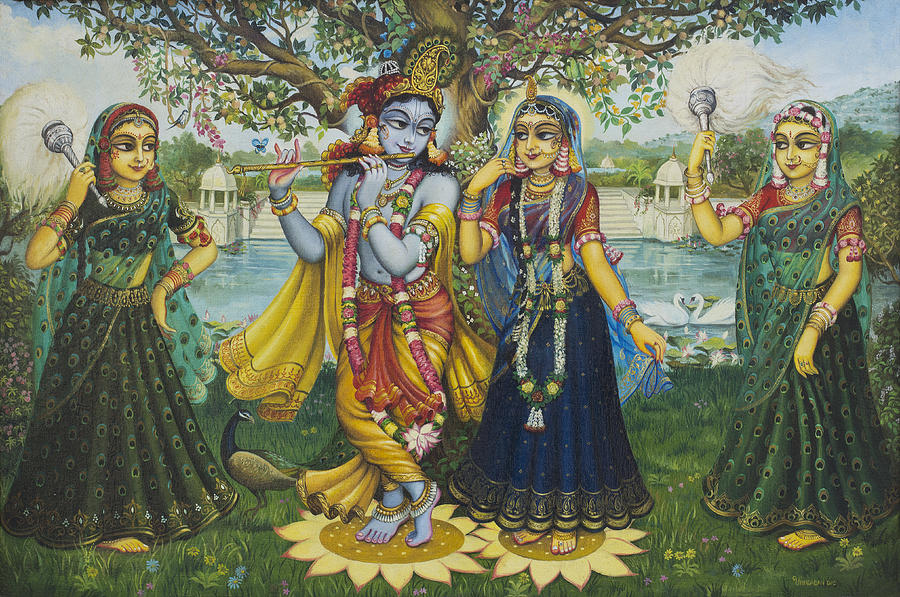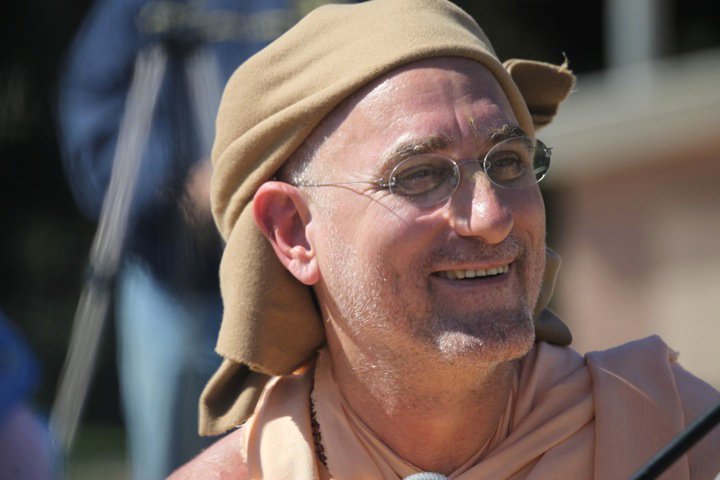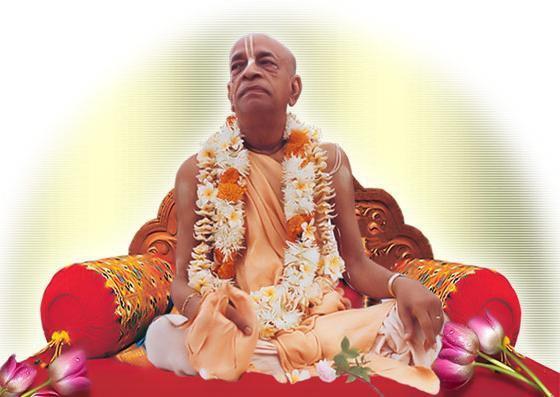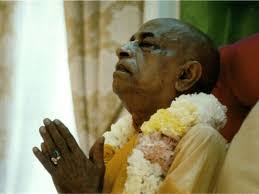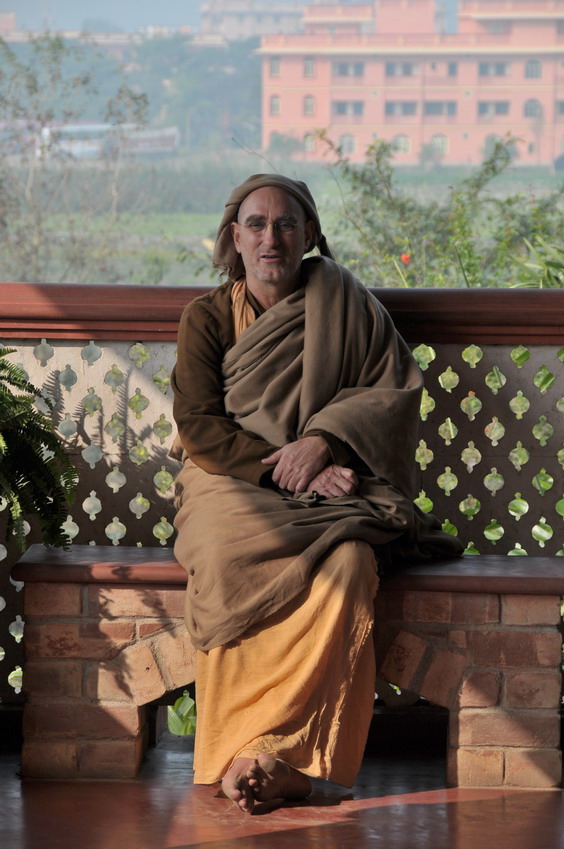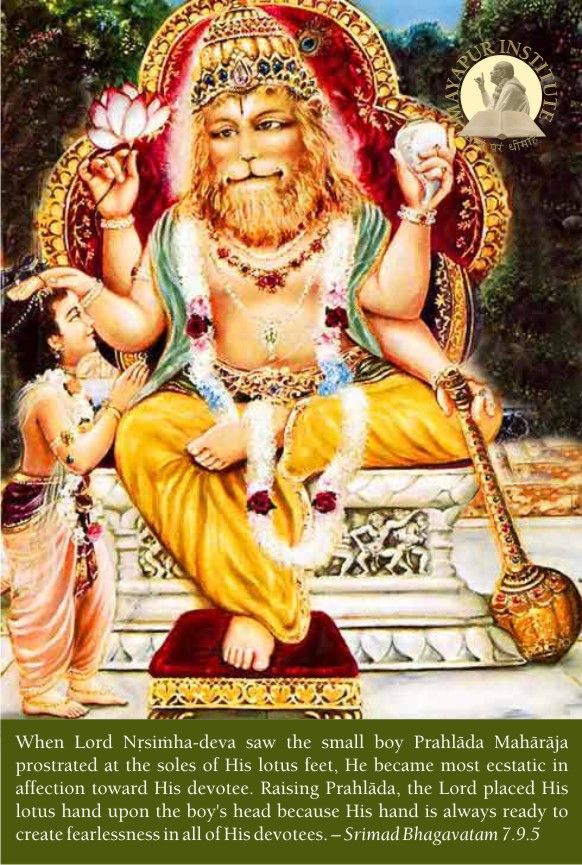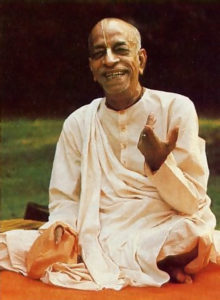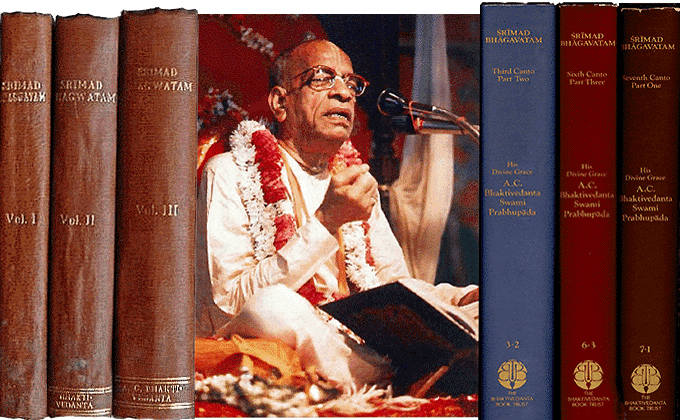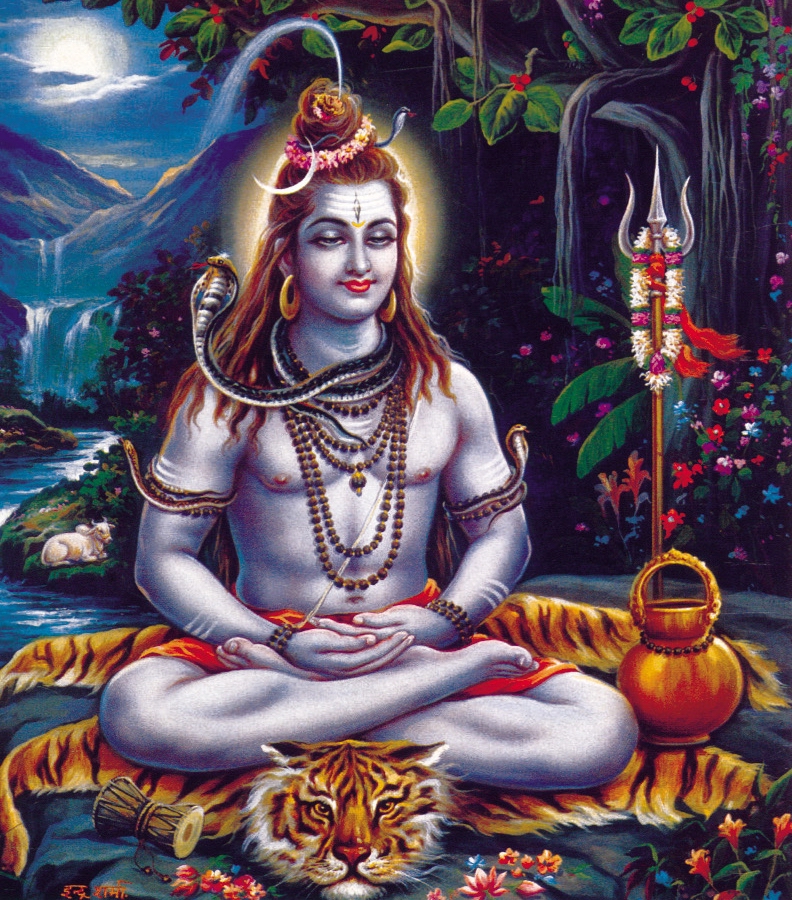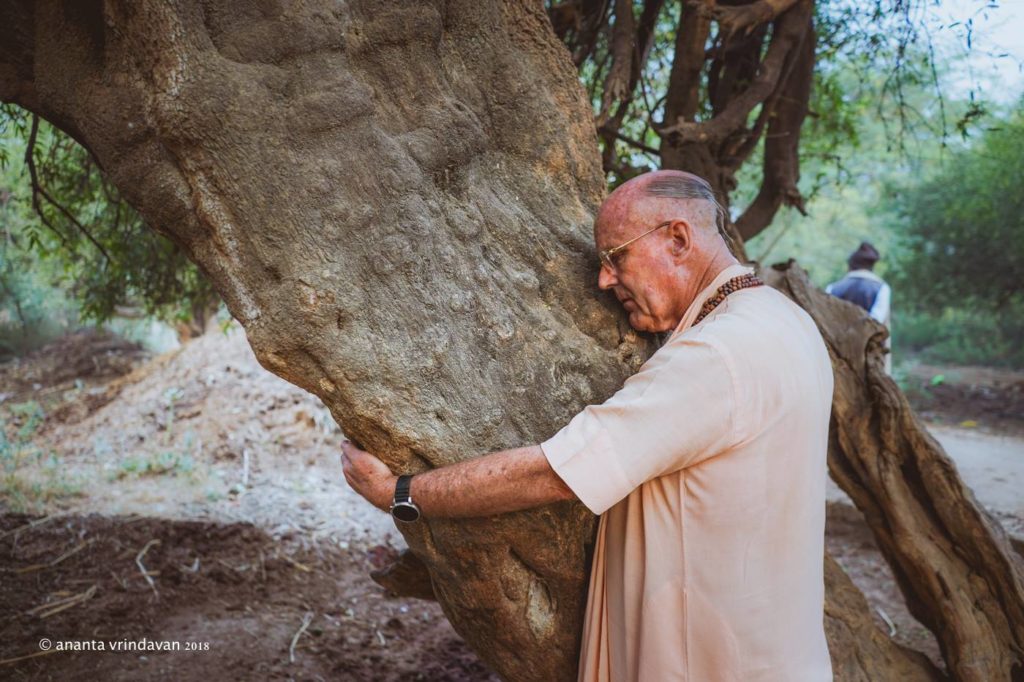
चिन्तामिणप्रकरसद्मसु कल्पवृक्ष लक्षा वृतेषु सुरिभरिभपालयन्तम् ।
लक्षमीसहस्रशतसम्भ्रमसेव्यमानं गोविंदमादिपुरुषं तमहं भजामि ॥ ५.२९॥
I worship Govinda, the primeval Lord, the first progenitor who is tending the cows, yielding all desire, in abodes built with spiritual gems, surrounded by millions of purpose trees, always served with great reverence and affection by hundreds of thousands of lakshmis or gopis.
The purpose tree yields only the fruits of piety. wealth, fulfillment of desire and liberation; but the purpose trees in the abode of Krishna bestow innumerable fruits in the shape of checkered divine love. Kāma-dhenus (cows yielding the fulfillment of desire) give milk when they are milked; but the kāma-dhenus of Goloka pour forth oceans of milk in the shape of the fountain of love showering transcendental bliss that does away with the hunger and thirst of all pure devotees.
(Brahma Samhita 5.29+p)
Same Vrindavan comes down
In Vrindavan Krishna herds the surabhi cows, and He is worshiped by hundreds and thousands of gopis, cowherd girls, who are all goddesses of fortune. When Krishna descends to the material world, this same Vrindavan descends with Him, just as an entourage accompanies an important personage. Because when Krishna comes His land also comes, Vrindavan is considered to exist beyond the material world. Therefore devotees take shelter of the Vrindavan in India, for it is considered to be a replica of the original Vrindavan .
(CC Introduction)
Kalpa Vrikshas – the wish fulfilling trees
In the spiritual world there are kalpa-vṛkṣa trees, which yield whatever type of fruit we desire. In the material world a mango tree cannot supply grapes, nor can a grapevine supply mangoes. In the spiritual world, however, if we take a mango from a tree and at the same time desire grapes, the tree will supply them. This is called a “desire tree.” These are some of the actualities of the spiritual world.
(TQK, chapter 25)
They give pleasure to Krishna
(Krishna to Madhumangala) ‘My dear friend, this forest of Vrindavan is giving great pleasure to our senses in various ways. Somewhere bumblebees are singing in groups, and in some places mild breezes are cooling the entire atmosphere. Somewhere the creepers and tree twigs are dancing, the mallikā flowers are expanding their fragrance, and an overabundance of juice is constantly flowing in showers from pomegranate fruits.’
(CC Antya 1.160)
They want this service
Description of Vrindavan, Vrindavan and Radha and Krishna situated there. The Vrindavan … Vana means forest, and vrinda means tulasi. Mostly there are tulasi plants and other trees also, but all the trees are living desire trees, spiritual. They can serve Krishna in any way, desire. They have become trees by their voluntary desire. They’re all spiritual beings—there is no force—but everyone has got a particular tendency to serve Krishna in a different way. So these trees and plants, they are also living beings. They are not ordinary living beings, but they have decided to serve Krishna by supplying fruits and flowers. They want that service.
(Srila Prabhupada lecture, 9th April 1975, Mayapur)
Krishna Himself glorifies their unique mood
The Supreme Personality of Godhead said: O greatest of Lords, just see how these trees are bowing their heads at Your lotus feet, which are worshipable by the immortal demigods. The trees are offering You their fruits and flowers to eradicate the dark ignorance that has caused their birth as trees.
The trees of Vrindavan were thinking that because of past offenses they had now taken birth as trees and, being immovable, could not accompany Lord Krishna in His wanderings throughout the Vrindavan area. In fact, all the creatures of Vrindavan , including the trees and cows, were great souls who could personally associate with the Supreme Personality of Godhead. But because of ecstatic sentiments of separation, the trees considered themselves in ignorance and thus tried to purify themselves by bowing down at the lotus feet of Krishna and Balarama. Lord Krishna understanding their mentality, simultaneously glanced at them with affection and praised their devotional service before His older brother, Balarama.
Lametation of a wish fulfilling tree!
One devotee tried to console a kadamba tree when the tree was lamenting because Krishna had not touched even its shadow. The devotee said, “My dear kadamba tree, do not be worried. Just after defeating the Kaliya snake in the Yamuna River, Krishna will come and satisfy your desire.” This is an instance of inappropriate hopelessness in ecstatic love for Krishna.
Wish fulfilling trees still exist in Vrindavan
Although one may complain that no kalpa vrikshas, wish fulfilling trees, exist there, when the six Gosvamis were there, kalpa vrikshas were present. It is not that one can simply go to such a tree and make demands; one must first become a devotee. The Goswamis would live under a tree for one night only, and the trees would satisfy all their desires. For the common man this may all seem very wonderful, but as one makes progress in devotional service, all this can be realized.
Vrindavan is actually experienced as it is by persons who have stopped trying to derive pleasure from material enjoyment. ”When will my mind become cleansed of all hankering for material enjoyment so I will be able to see Vrindavan ?” one great devotee asks. The more Krishna conscious we become and the more we advance, the more everything is revealed as spiritual.
Thus Krishnadasa Kaviraja Goswami considered the Vrindavan in India to be as good as the Vrindavan in the spiritual sky, and in the sixteenth verse of the Caitanya–caritamrta he describes Radharani and Krishna as seated beneath a wish fulfilling tree in Vrindavan , on a throne decorated with valuable jewels. There Krishna’s dear gopis friends serve Radha and Krishna by singing, dancing, offering betel nuts and refreshments, and decorating Their Lordships with flowers. Even today in India people decorate swinging thrones and re-create this scene during the month of July-August. Generally at that time people go to Vrindavan to offer their respects to the Deities there.
An unusual last wish from someone very special
“[Srimati Radharani said to Her constant companion Vishakha:] ‘My dear friend, if Krishna is unkind to Me, there will be no need for you to cry, for it will not be due to any fault of yours. I shall then have to die, but afterwards please do one thing for Me: to observe My funeral ceremony, place My body with its arms embracing a tamāla tree like creepers so that I may remain forever in Vrindavan undisturbed. That is My last request.'”
Krishna’s Tree house!
Sri Krsna, the moon of Vraja, enjoys pastimes and also rests in these groves, which are filled with many wonderful trees and vines eternally blossoming with many beautiful flowers, even down to their roots. In the groves of Vraja, the cuckoos and bumblebees sing very melodiously, the plants are all splendidly beautiful, the camari does gracefully move their tails, and the musk oxen diffuse a sweet aroma in all directions. In the groves of Vraja there is a little clearing bounded on four sides by four kalpa-vrksa trees, each covered by two flowering vines. In the centre of this little courtyard is a cottage made of jewels. Four trees are the four pillars of this cottage. Their branches and twigs are its roof, their flowers its domes and spires, the vines clinging to their sides its walls, and the opening among the vines is its door. These beautiful cottages, which are found throughout Vraja’s forests, remove the demigods’ pride in their airplanes, and attract even the residents of Vaikuntha.
(Srila Visvanatha Cakravarti Thakura in Vraha Riti Cintamani, chapter 2, text 26-30)
(So it may not be such a bad idea that the next time we are in Vrindavan, or Mayapur, that we pay our obeisances, hug and pray to any of our favorite trees, we may be very surprised by the result.)
All glories to the wish fulfilling trees of Vrindavan
All glories to Srila Prabhupada.
Your servant,
Giriraj dasa


